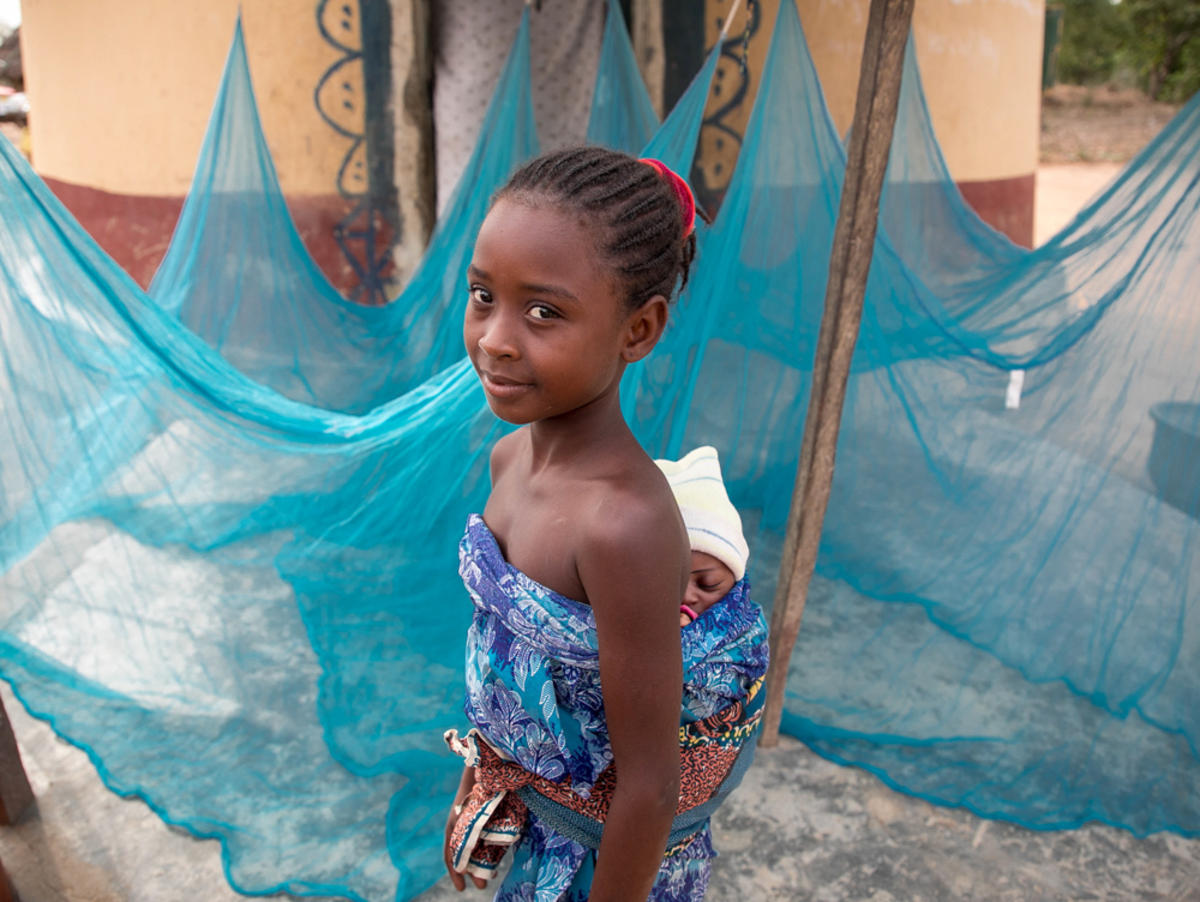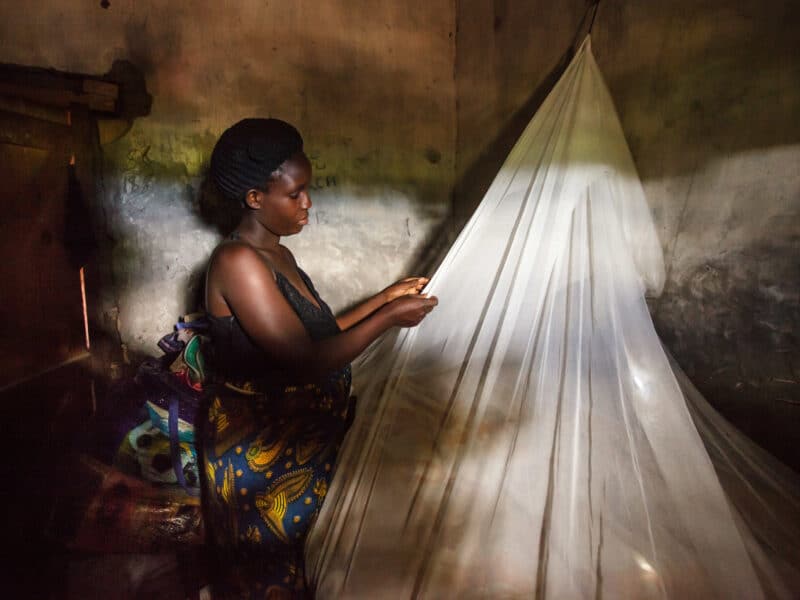Encouraging more people to sleep under treated bed nets in malaria-endemic Ghana isn’t just about handing out more nets, new research led by the Johns Hopkins Center for Communication Programs and Noguchi Memorial Institute for Medical Research suggests.
A key to preventing more malaria cases, the researchers say in Malaria Journal, means finding ways to make it easier or more comfortable for occasional or seasonal users to become nightly users.
The most common reason why people abandon their nets, especially in the dry season: Heat, the researchers say. In some parts of Ghana, the lack of knowledge about malaria, which contributes to a lack of motivation to use a net, was another major culprit. Study participants also described developing skin irritations from the chemically treated nets, even after airing them for 24 hours as instructed.
“Researchers ask the question: Did you use a net last night? Then they categorize someone as a user or a non-user,” says CCP’s April Monroe, PhD, the study’s senior author. “But that’s just a piece of the picture. It’s a lot more complex than that. We need to shift our thinking about net use.
“While we often think of net use as an either-or proposition, most people fall somewhere on a spectrum between never using a net and always using a net. We need to understand why people choose not to sleep under a net consistently – and we need to listen to people to find and develop solutions in order to make it easier for them to protect themselves.”
Treated mosquito nets are meant to hang over beds as people sleep in order to prevent them from being bitten by mosquitoes carrying the malaria parasite. Bed nets, mostly provided for free by global donors in low-resource countries, are a major reason why malaria cases have dropped dramatically in sub-Saharan Africa over the past 15 years.
Still, malaria remains a major public health issue in Ghana, where in 2016 malaria accounted for 39 percent of doctor’s visits, 25 percent of hospital admissions and four percent of deaths, half of whom were children under the age of five.
The most recent health surveys have found that only two-thirds of Ghanaians with access to a bed net slept under one the night before. The new research was done to better understand this gap by conducting 18 focus groups made up of 174 participants as well as seven in-depth case studies.
“When the rainy season comes and you sleep in the net, it is really comfortable, and the air too circulates,” said one female community member. “So when the heat starts to come, then we reject it because … when you sleep in it, you will sweat.”
Insecticide-treated mosquito nets are designed to be used indoors over a bed, but people aren’t always in bed when the mosquitoes are biting and sometimes they even sleep outside – making them even more vulnerable to malaria. In some households, the researchers learned, people sleep outside when it is hot. And, in some cases, they have found innovative ways to hang the nets over themselves even when they aren’t in a bed.
“When it’s hot outside, we sleep here on the veranda and, to prevent mosquito bites, we bring the net outside and spread it over four plastic chairs,” one case study participant explained. “When this is done, you can sleep until morning without feeling any heat. So for me, I like to sleep in the mosquito net.”
Monroe says that malaria programs should listen to stories like these and work to create messaging to help people stay comfortable and protect themselves from mosquitoes at the same time.
“If we want people to use the nets consistently, we need to listen to their experiences and learn from them,” she says.
Meanwhile, the study notes, the most powerful motivator for consistent net use is falling ill or losing a loved one to malaria.
“I had a baby girl,” one said. “But we were not sleeping in the bed net and she had malaria … When we arrived [at the clinic], she was dead, my baby girl was dead. Since that time, we have slept in the mosquito net every day. Even when it is hot, we sleep in it.”
Participants who use nets consistently noted that there are financial benefits of prevention over treatment and that using a net can contribute to a good night’s sleep, free of nuisance biting from mosquitoes and other insects.
The study results were presented to the Ghana National Malaria Control Program and U.S. President’s Malaria Initiative, with the researchers highlighting immediate opportunities to improve social and behavior change interventions. This included outlining key motivators to consistent use, updating messaging around airing nets before use and disseminating local solutions to using nets in challenging contexts, such as outdoors.
“Understanding the gap between access and use: a qualitative study on barriers and facilitators to insecticide-treated net use in Ghana” was written by Collins Stephen Ahorlu, Philip Adongo, Hannah Koenker, Sixte Zigirumugabe, Sika-Bright Solomon, Eric Koka, Philip Teg-Nefaah Tabong, Danielle Piccinini, Sylvester Segbaya, Bolanle Olapeju and April Monroe.





